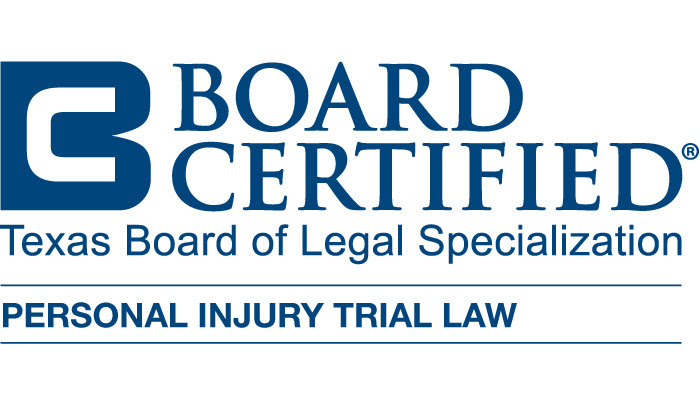Losing a loved one due to someone else’s negligence or wrongful actions is an unimaginable tragedy. In such trying times, seeking justice can feel overwhelming, but understanding your rights and the legal process is paramount. As experienced wrongful death attorneys, we are here to shed light on how to navigate the complexities of filing a wrongful death lawsuit in Texas.
At Willumsen Law Firm, P.C., we’re dedicated to helping families pursue justice and compensation for their losses — and that includes helping you understand what constitutes a wrongful death lawsuit, as well as how to win them.
What Constitutes a Wrongful Death Lawsuit?
When someone dies due to the negligence or wrongful actions of another party, surviving family members may have the right to pursue justice through a wrongful death lawsuit. Wrongful death occurs when a person dies due to the negligence, recklessness, or intentional actions of another individual or entity. But a lawsuit has specific requirements which need met — requirements a wrongful death attorney can help you with.
Eligibility to File
In Texas, only certain family members are eligible to file a wrongful death lawsuit. This typically includes spouses, children (including adopted children), and parents of the deceased. If none of these parties file a claim within three months of the death, the executor or administrator of the deceased’s estate may file the lawsuit.
Even if you are eligible, specific elements must be established to successfully bring forth a wrongful death claim. These elements serve as the foundation of the legal case and are crucial for demonstrating liability and seeking compensation for the loss endured by the surviving family members.
Duty of Care
The first element in a wrongful death lawsuit is establishing that the defendant owed a duty of care to the deceased. This duty of care typically arises from the relationship between the parties or the circumstances surrounding the incident that led to the death.
Breach of Duty
Once the duty of care is established, the next step is demonstrating that the defendant breached that duty through negligent or wrongful actions. This breach could involve acts of negligence, recklessness, or intentional misconduct that directly contributed to the death of the victim.
Causation
Causation is a critical element in proving a wrongful death claim. It requires establishing a direct link between the defendant’s breach of duty and the death of the victim. In other words, the plaintiff must demonstrate that the defendant’s actions or negligence were the proximate cause of the fatal injuries.
Damages
Finally, to recover compensation in a wrongful death lawsuit, the plaintiff must prove the damages suffered as a result of the death. These damages may include financial losses, such as medical expenses and funeral costs, as well as non-economic losses, such as loss of companionship, guidance, and support.
My focus is to give a voice to families who have suffered a wrongful death or a serious injury to a family member caused by an 18-Wheeler, commercial truck, or a drunk driver. Contact us today, we can help you.Helping Injury Victims for Over 25 Years
What are Some Examples of Possible Wrongful Deaths?
Wrongful deaths can occur in various scenarios, each necessitating a detailed investigation with a wrongful death attorney’s expertise. Common examples include car accidents, often due to impaired or reckless driving and disregard for traffic laws, leading to fatal crashes. Medical malpractice is another cause, where errors in surgery, misdiagnosis, medication mistakes, or negligence during childbirth by healthcare professionals can lead to death, allowing the deceased’s family to file a lawsuit. Workplace incidents, especially in sectors like construction or oil and gas, where employer negligence or safety failures cause fatalities, may also result in wrongful death claims. Additionally, deaths caused by defective products, from vehicles to household appliances, could see manufacturers or sellers liable for wrongful death. Premises liability cases arise when a property owner’s negligence, such as in slip and fall accidents or inadequate security leading to assault, results in death. Furthermore, intentional acts like assault or homicide, despite criminal proceedings, can open avenues for civil lawsuits by the victim’s family seeking compensation. These instances exemplify potential wrongful death cases under Texas law, emphasizing the importance of legal consultation for those who suspect negligence or misconduct in a loved one’s death.
Related Videos
Choosing a Personal Injury Attorney
Types of Compensation in a Truck Accident Claim
What Kinds of Damages May Be Awarded in a Wrongful Death Suit?
In Texas, the law allows surviving family members to pursue a wrongful death lawsuit to seek justice and financial compensation for their loss. This legal action enables them to claim damages, which are monetary awards intended to cover the various losses incurred due to the wrongful death of their loved one. These damages are categorized into different types, each addressing specific aspects of loss and suffering experienced by the surviving family members.
Economic damages are one of the primary types of compensation in a wrongful death suit. These damages are designed to provide financial restitution for the tangible losses the family has faced as a result of the death. This includes compensation for medical expenses incurred during the final illness or injury of the deceased, as well as costs related to funeral and burial services. Economic damages also cover the loss of income, which encompasses the deceased’s expected earnings, benefits, and other financial contributions they would have made to their family over time. Additionally, they can include compensation for the loss of benefits like health insurance and retirement contributions, as well as the loss of inheritance, representing the wealth the deceased would have likely passed on to heirs.
Non-economic damages address the more subjective and intangible aspects of loss. These include compensation for the pain and suffering the deceased experienced before death, which acknowledges the physical and emotional distress endured. Surviving family members can also receive damages for loss of consortium, which compensates for the loss of companionship, love, and support they miss due to the death. Furthermore, non-economic damages may cover the loss of care, maintenance, and protection the deceased would have provided, as well as compensation for the mental anguish and emotional distress the survivors experience as a result of their loss.
In addition to compensatory damages, which include both economic and non-economic damages, punitive damages may be awarded in cases where the defendant’s behavior was particularly harmful or egregious. These damages are not meant to compensate the family for their loss but rather to punish the defendant for their wrongful actions and serve as a deterrent to prevent similar conduct in the future. However, punitive damages are not commonly awarded and are typically reserved for cases where the defendant’s actions were willful, reckless, or grossly negligent.
The specific types and amounts of damages awarded in a wrongful death lawsuit in Texas depend on the unique circumstances of the case and the extent of the losses suffered by the surviving family members. Moreover, Texas law imposes certain restrictions on the types and amounts of damages that can be awarded in wrongful death cases, reflecting the state’s legislative approach to balancing the interests of bereaved families and the legal system’s principles governing compensation for loss and deterrence of wrongful conduct.


Helping You Get The Damages You Deserve
When you work with a wrongful death attorney at Willumsen Law Firm, P.C., our primary goal is to ensure that our clients receive the maximum compensation they are entitled to under the law.
If you’ve lost a loved one due to the negligence or wrongful actions of another party, don’t hesitate to reach out for a confidential consultation — we’re here to provide compassionate support and aggressive advocacy on your behalf. Contact our office today for your free consultation, and begin your path to healing with a trusted advocate by your side.



